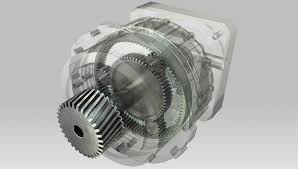Mobile:+86-311-808-126-83
Email:info@ydcastings.com
impeller of motor
The Impeller of a Motor An Essential Component in Mechanical Engineering
In the realm of mechanical engineering, the impeller of a motor plays a crucial role in facilitating fluid movement and enhancing the performance of various devices. Understanding how impellers function and their various types can provide insight into their significance in numerous applications, ranging from pumps to turbines.
What is an Impeller?
An impeller is a rotating component found in centrifugal pumps, fans, and turbines that transfers kinetic energy to the fluid, enabling it to move efficiently. Its design typically includes a series of curved blades that accelerate the fluid outward, using the principles of centrifugal force to create motion. The impeller's shape, size, and material can significantly affect the performance and efficiency of the system it is integrated into.
Types of Impellers
There are several types of impellers, each tailored for specific applications
. The most common types include1. Closed Impeller This type features blades that are enclosed on both sides, providing better efficiency and higher pressure capabilities. Closed impellers are widely used in various applications due to their ability to handle a broad range of fluids.
2. Open Impeller In contrast to closed impellers, open impellers have blades that are exposed. This design facilitates the handling of fluids with larger particles or slurries, making them ideal for applications in wastewater treatment and chemical processing.
3. Semi-Open Impeller A hybrid between closed and open designs, semi-open impellers are effective for certain applications where liquid properties can vary. Their flexibility allows them to be used in both clean and dirty fluids, although they typically have lower efficiency than closed impellers.
4. Vertical Impeller Often utilized in applications requiring the movement of liquid vertically, these impellers are commonly used in submersible pumps and sewage systems. They can handle solids effectively and are designed to accommodate a wide range of fluid types.
The Role of Impellers in Motors
impeller of motor

Impellers are not just simple rotating mechanisms; they are integral to the efficiency and functionality of many motor-driven systems. In electric motors, for example, the coupling of an impeller to a rotor enables the conversion of electrical energy into mechanical energy, which subsequently activates the fluid movement. This interaction is essential for systems like hydroelectric power generation, where rotating impellers drive turbines, converting water flow into electrical energy.
Moreover, in HVAC systems, impellers play a critical role in regulating airflow, ensuring the proper circulation of air within buildings. Efficient design and selection of impellers can lead to significant energy savings and improved system performance, showcasing their importance in everyday applications.
Factors Influencing Impeller Performance
Several factors can influence the performance of an impeller within a motor system
1. Shape and Design The curvature, width, and number of blades all affect the overall efficiency and flow rate. Engineers must carefully consider these parameters when designing impellers for specific applications.
2. Material Selection Impellers can be constructed from various materials, including metals, plastics, and composites. The choice of material impacts not only the strength and durability of the impeller but also its resistance to corrosion and wear.
3. Operating Conditions Temperature, viscosity, and density of the fluid being moved can significantly impact the operation of an impeller. Thus, the design must accommodate the specific conditions under which it will operate.
4. Motor Specifications The power and speed of the motor driving the impeller also play a vital role in its effectiveness. A mismatch between motor capabilities and impeller design can lead to decreased performance or even system failure.
Conclusion
The impeller of a motor is more than a mechanical part; it is a vital component that directly influences the efficiency and efficacy of fluid transport systems in various engineering applications. Understanding the different types of impellers, their functions, and the factors that influence their performance can enhance the design and application of motor-driven systems across multiple industries. As technology continues to advance, the development of more efficient and effective impellers will remain a key focus for engineers striving to optimize fluid mechanics and energy conversion processes.
-
Why Should You Invest in Superior Pump Castings for Your Equipment?NewsJun.09,2025
-
Unlock Performance Potential with Stainless Impellers and Aluminum End CapsNewsJun.09,2025
-
Revolutionize Your Machinery with Superior Cast Iron and Aluminum ComponentsNewsJun.09,2025
-
Revolutionize Fluid Dynamics with Premium Pump ComponentsNewsJun.09,2025
-
Optimizing Industrial Systems with Essential Valve ComponentsNewsJun.09,2025
-
Elevate Grid Efficiency with High-Precision Power CastingsNewsJun.09,2025











